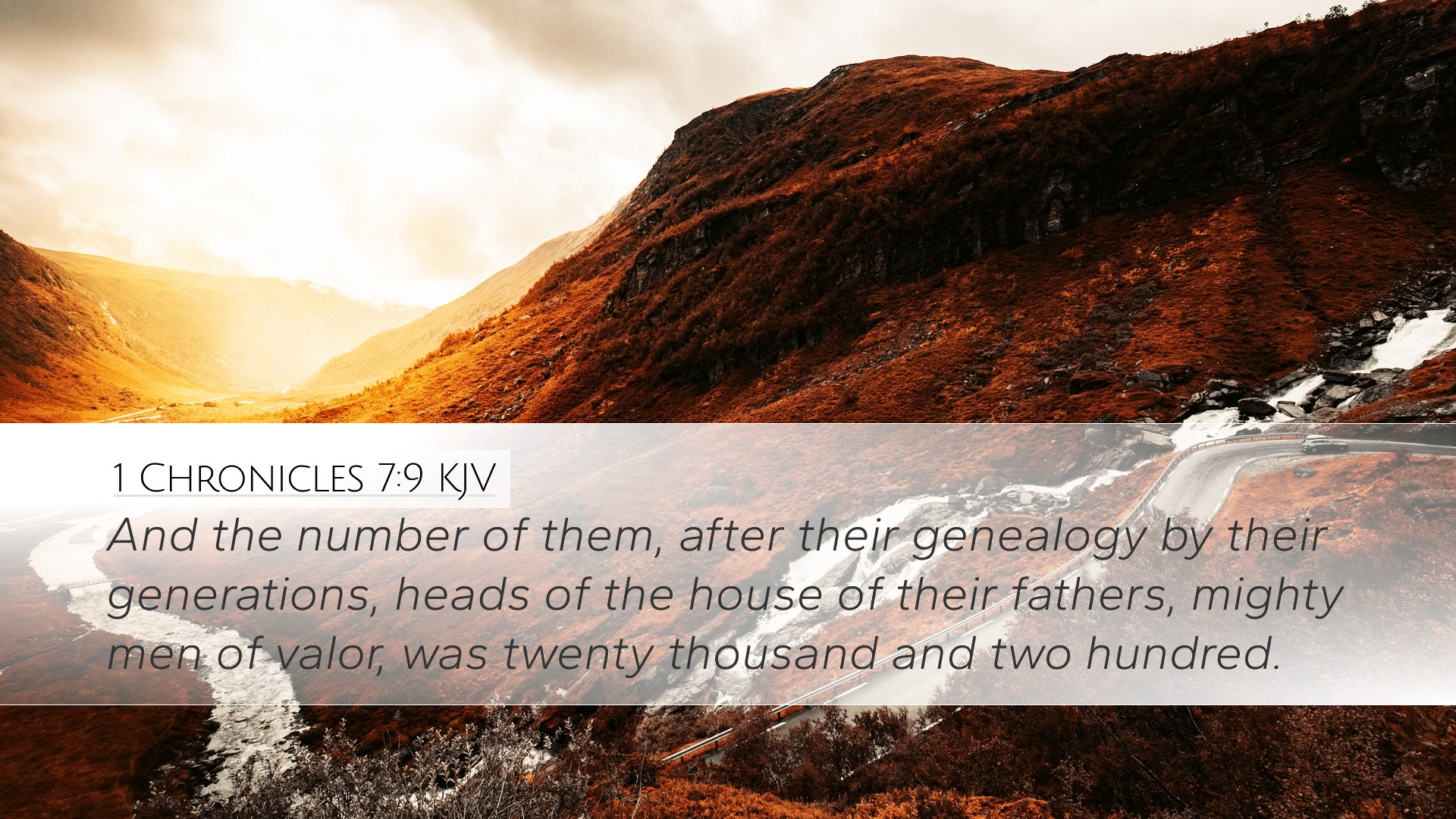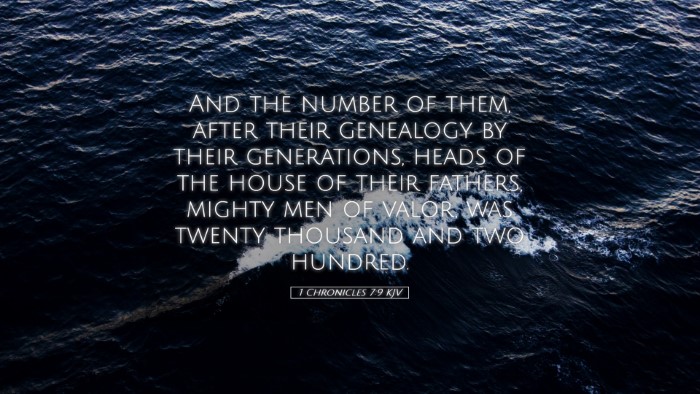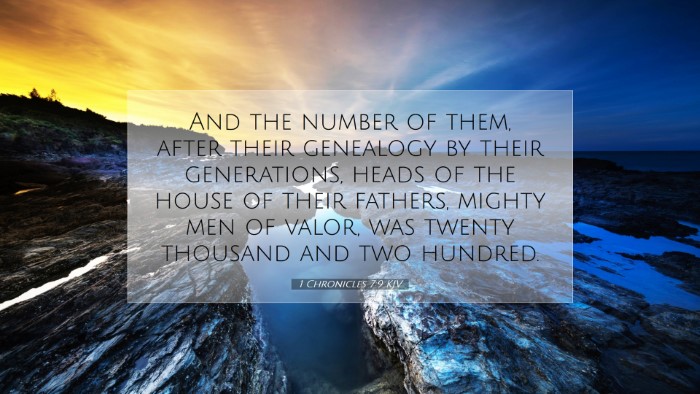Commentary on 1 Chronicles 7:9
Introduction: In 1 Chronicles 7:9, we encounter a passage that speaks to the heritage and lineage of the tribes of Israel, particularly focusing on the descendants of Issachar. The verse reads: “And the number of the men of Issachar, that were fit to go out to war, and had understanding of the times, to know what Israel ought to do; the heads of them were two hundred; and all their brethren were at their command.” This commentary seeks to illuminate the theological and historical significance of this verse, drawing insights from notable public domain commentators, including Matthew Henry, Albert Barnes, and Adam Clarke.
Understanding the Context
Background: The book of Chronicles serves to remind the post-exilic community of God's covenant with Israel. The genealogical records, including the tribe of Issachar, serve a dual purpose: to emphasize God's faithfulness and to restore the identity of the Israelites. Issachar, as one of Jacob's sons, represents a significant line within Israel’s history, as his descendants played crucial roles in the political and military life of the nation.
The Tribe of Issachar
Historical Insight: Matthew Henry notes that the tribe of Issachar was known for its wisdom and ability to discern the times. The men of Issachar were distinguished not merely by their number but also by their unique capability of understanding the current affairs pertinent to Israel's well-being and divine purpose. This insight is critical for leaders within the community, as their judgments and actions could influence the nation's fate.
Military Preparedness
Military Size and Readiness: Albert Barnes elaborates on the phrase “fit to go out to war,” indicating that the tribe of Issachar had a strength of 200 men prepared for battle. This readiness underscores the importance of military capability in the ancient context. The men’s understanding of timing in military engagements was vital for Israel’s survival against external foes.
Spiritual Interpretation
Wisdom and Understanding: The reference to “understanding of the times” suggests a depth of spiritual insight. Adam Clarke points out that the men of Issachar were characterized not solely by their knowledge but by their divine wisdom. This necessitates a consideration of what it means to possess spiritual insight in the context of contemporary religious life. In modern terms, this might translate into an ability to discern God’s will rapidly amid changing societal landscapes.
Leadership and Authority
Role of Leaders: The phrase “and all their brethren were at their command” highlights the respect and influence the leaders of Issachar held within their community. This aspect mirrors the Biblical principle of leadership as being rooted in wisdom and understanding. Leaders, in any context—be it pastoral, ecclesiastical, or secular—are called to discern the times and guide their communities thoughtfully and effectively.
Application for Today
The Call for Discernment: In light of this passage, there is a pressing need for contemporary believers to cultivate discernment akin to that of the men of Issachar. Pastors and leaders are encouraged to develop a robust understanding of not just Biblical truths but also of the prevailing cultural contexts. This discernment will guide their leadership and responsibilities within their communities.
Formulating Action Steps
- Seek Divine Wisdom: Individuals are encouraged to dedicate time in prayer and study of Scriptures to gain understanding pertinent to their contexts.
- Engage with Community: Leadership calls for an engagement with the community to understand their needs and dynamics, fostering responsive ministry.
- Educate Others: As the leaders of Issachar understood their role, modern leaders should educate their congregations on how to interpret and respond to contemporary events through a biblical lens.
Conclusion
Reflection: 1 Chronicles 7:9 serves not just as a historical account but as an injunction for all believers to embrace wisdom, insight, discernment, and readiness to act. The legacy of the men of Issachar calls out for modern discipleship—one that is rooted in a profound understanding of the times and a commitment to the mission of God through wise leadership and responsible action.


